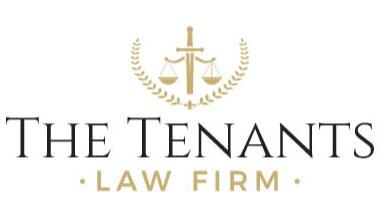What is Elder Abuse and How Does it Affect Tenants in California?
Any mistreatment or injury imposed on an elderly person is referred to as elder abuse. It may take many different forms, including neglect, abandonment, and financial, sexual, or emotional abuse. In the context of elderly tenants, abuse can occur within the landlord-tenant relationship. While most cases are due to financial reasons, other cases of elder abuse have also been reported against landlords in California; sometimes, elderly tenants who experience abuse may also face barriers in seeking help or reporting the abuse. They may fear retaliation, eviction, or further harm. Abuse can contribute to a sense of vulnerability among elderly tenants, impacting their overall sense of safety and security in their own homes. It is crucial to be aware of the signs of abuse and the resources that are available to make sure the tenant's rights are being protected.
What are some general signs of elderly tenant abuse by the landlord?
It is important to look for signs indicating elder abuse so that it can be properly reported and addressed. Here are the four most important and commonly observed signs of elder abuse reported by the families of elderly tenants in California:
Physical injuries: These include cuts, burns, unexplained bruises, recurring injuries, or irrelevant and inconsistent explanations about the cause of the injury. In many cases, elders tend to avoid conflict with their landlord due to many different reasons, so caregivers or families should look for signs of physical damage and take them seriously to prevent abuse.
Restraint or confinement: Restricting the freedom of movement is another common sign of elderly tenant abuse. A landlord may physically restrain or confine an elderly tenant against their will, restricting their freedom of movement. It could also be done in an indirect way of the landlord not being willing to accommodate the needs of the elderly tenants.
Neglecting repairs and maintenance: Failing to address necessary repairs or maintenance issues in the rental property can lead to unsafe living conditions, which can negatively impact the health and wellbeing of elderly tenants.
Financial exploitation: Landlords may take advantage of elderly tenants financially by overcharging for rent, forcing unnecessary fees, or mismanaging financial transactions.
Neglect of physical needs and discrimination: Elderly tenants may experience harassment or discrimination based on their age, leading to a hostile living environment or unfair treatment in terms of rental terms or conditions. Failing to provide necessary assistance with mobility, personal hygiene, or medical care can lead to serious physical harm.
These are some general signs of elderly abuse, but each case may have its own unique circumstances. If you happen to witness any of these signs or any other form of abuse against elderly tenants, it is crucial for you to report the issue to the authorities in order for them to investigate the case and take proper action.
What are some California laws regarding landlords and elderly tenant abuse cases?
In California, there are many laws and regulations protecting the elderly:
California Civil Code Section 1941.3: The law requires landlords to provide and maintain housing that is in a good habitable condition and built by standards to protect tenants from hazardous conditions. If elderly tenants believe that their right to have safe and up-to-standard housing is being violated, they should contact an attorney to avoid mental or physical abuse.
California Penal Code Section 368: The law addresses various types of elder abuse, including physical abuse, neglect, financial exploitation, and emotional mistreatment. It applies to everyone, ensuring the protection of elders from any form of harm. In cases where elders or their families suspect abuse, it is crucial to promptly report the incidents to law enforcement authorities and contact attorneys for further investigation.
California Welfare and Institutions Code Section 15610.07: This law clearly explains what elder abuse means and gives a wide definition of what counts as abuse. It covers physical harm, neglect, financial abuse, and abandonment, as well as recognizes the various ways elder abuse can happen between tenants and landlords.
California Civil Code Section 1954.53: This law prohibits retaliation against elderly tenants who exercise their rights, report abuse, or participate in legal actions related to elder abuse. It protects elderly tenants from eviction or other negative actions as a result of seeking protection under the law.
What should elderly tenants or their families do if they suspect elder abuse from their landlord?
There are several steps that tenants can take to ensure their rights are not violated:
Document Incidents: Keep a detailed record of any incidents or behaviors that raise suspicion. This includes dates, times, descriptions of incidents, and any witnesses present. Documentation can strengthen the case if legal action or reporting becomes necessary.
Seek Legal Advice: Consult with an attorney who specializes in landlord-tenant law or elder law. They can provide guidance on the specific situation, rights, and legal remedies available to address the suspected abuse.
Report to Authorities: Contact local law enforcement or Adult Protective Services (APS) to report the suspected abuse. APS agencies are responsible for investigating reports of elder abuse and can provide necessary protection and support.
Contact Tenant Rights Organizations: Reach out to local tenant rights organizations or advocacy groups that can provide guidance, resources, and support for dealing with landlord abuse.
Explore Alternative Housing Options: If the abuse persists or legal action does not provide a resolution, elderly tenants and their families may need to explore alternative housing options. This can involve seeking assistance from social service agencies that specialize in housing support for the elderly.
Elder abuse is a serious issue, and contacting experienced attorneys is important. Tenants Law Firm is here to help. Our team specializes in these cases to protect you against age discrimination and harrassment by your landlord. If you think you are entitled to an elder abuse lawsuit, contact us by calling (310) 432-3200 or by using this form.

